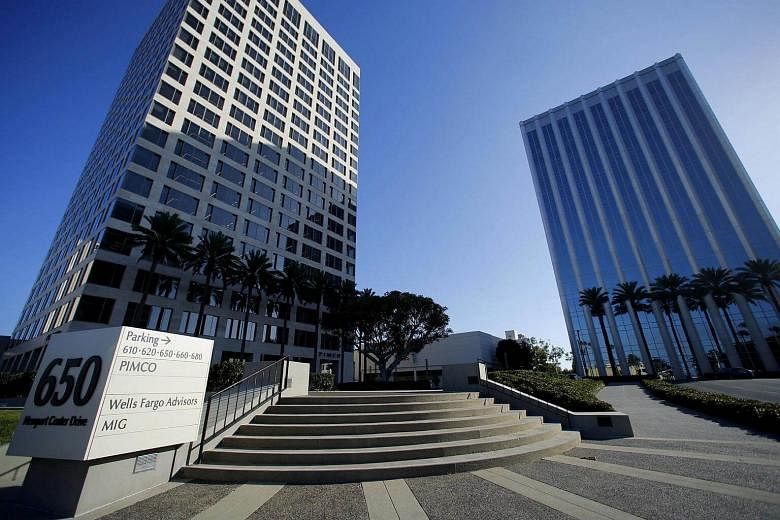HONG KONG (BLOOMBERG) - Pacific Investment Management Co (Pimco) is wary of the risks of rising debt levels after sales of dollar bonds by borrowers in the Asia-Pacific region ballooned to a record.
Issuance surged 66 per cent last quarter from the year earlier to US$152 billion, according to data compiled by Bloomberg. Borrowers have rushed to lock in lower financing costs as the average yield premium on the securities has fallen 72 basis points this year to 206, near the lowest since 2007, according to Bank of America Merrill Lynch indexes.
Investors have plowed money into riskier assets despite warning signs, in a hunt for yield as central banks in the US, Europe and Japan keep interest rates near zero. Median net debt at listed Asia-Pacific firms has jumped to 3.1 times earnings before interest, taxes, depreciation and amortization, from 1.9 five years ago, data compiled by Bloomberg show. It's becoming harder for companies to service obligations as the region's economic growth cools this year to what analysts forecast will be the weakest since 2009.
"Credit is increasing in Asia but growth isn't rising" at the same speed, said Roland Mieth, a Singapore-based emerging markets portfolio manager at Pimco. "We don't expect leverage or increasing debt to slow down in Asia."
China's policy makers have been keeping monetary policy relatively supportive. Yet central bank deputy governor Yi Gang said last month that the nation's short-term goal has to be curbing leverage. CLSA estimates total debt may reach 321 per cent of gross domestic product in 2020 from 261 per cent in the first half.
BNP Paribas in September warned that investors are not paying sufficient attention to default risks in the Asia dollar bond market as they hunt for yields.
BEA Union Investment Management said valuations on some of the deals have been stretched. It flagged risks such as the US elections and the weakness of European banks, which could trigger a sell-off.
"It's true that some of the deals do not really compensate investors for taking the risk," said Pheona Tsang, the Hong Kong-based head of fixed income at BEA Union Investment.

